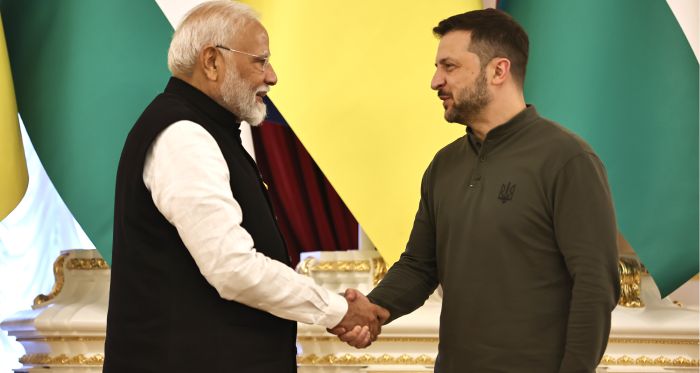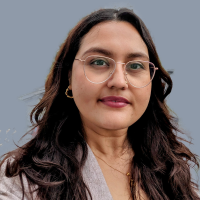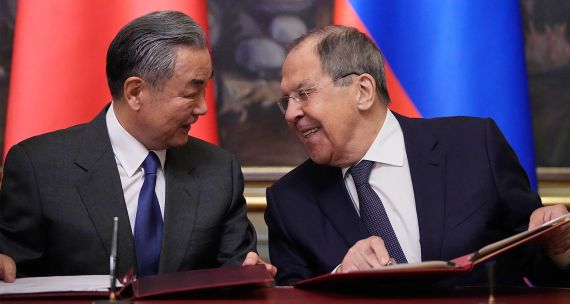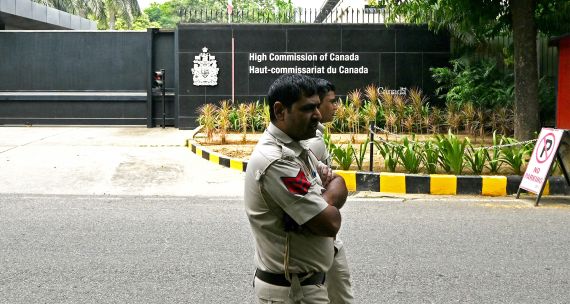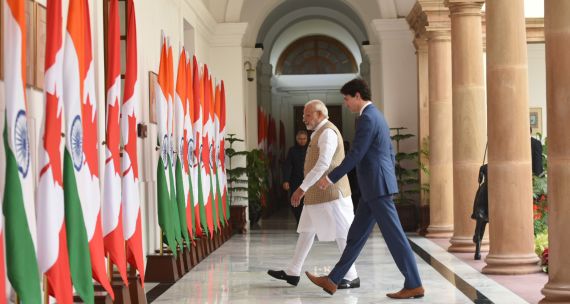The Takeaway
Indian Prime Minister Narendra Modi’s historic visit to the Ukrainian capital of Kyiv on August 23 underscores New Delhi's commitment to 'strategic autonomy' in its foreign policy — maintaining maximum flexibility by avoiding formal alliances. The trip also signals India's willingness to contribute to a peaceful resolution of the Russia-Ukraine war. Modi is one of the few world leaders to have visited both Kyiv and Moscow since Russia launched its full-scale invasion of Ukraine in 2022. But while the U.S. welcomed Modi’s visit to Kyiv, calling it ‘helpful’ for peace efforts, New Delhi is unlikely to participate in peace talks that exclude its long-standing partner, Russia.
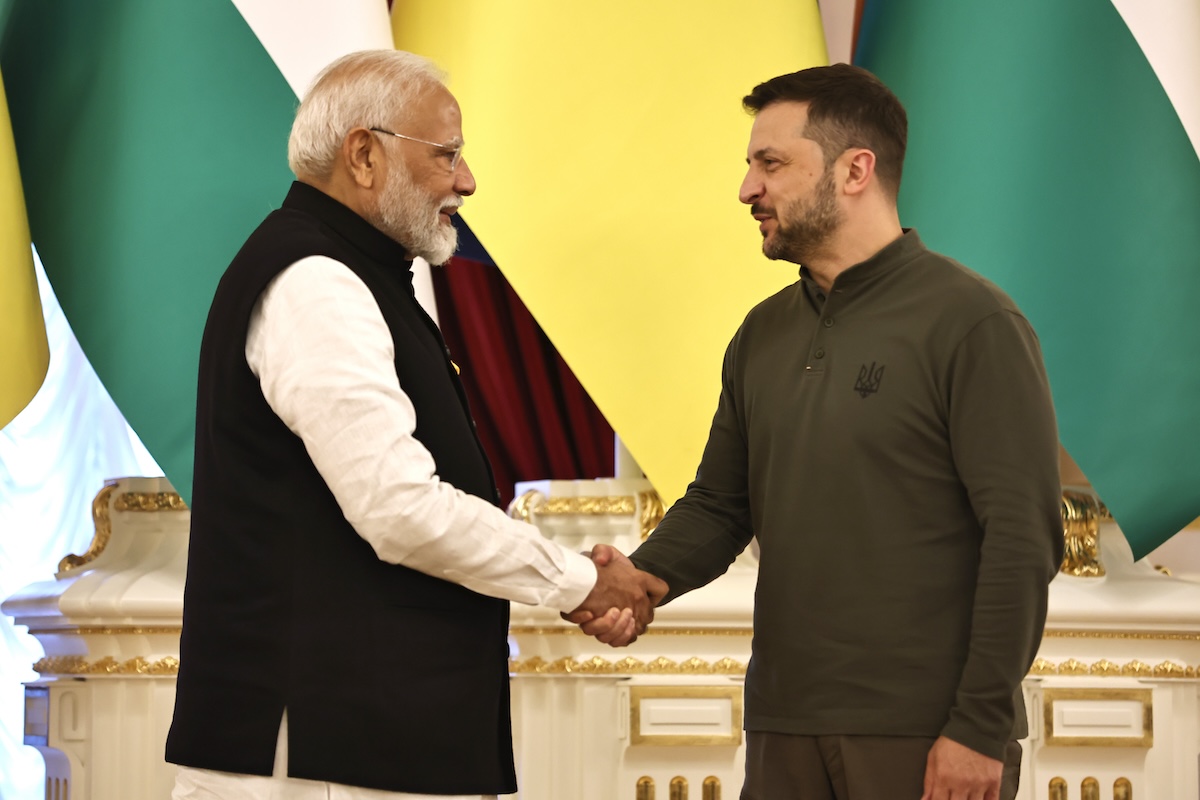
In Brief
- Modi’s visit to Ukraine — the first by an Indian prime minister since Ukraine’s independence from the Soviet Union in 1991 — resulted in bilateral agreements on agriculture, medicine, culture, and humanitarian assistance.
- Modi arrived in Kyiv following a two-day visit to Poland, which was the first by an Indian prime minister in 45 years, signifying India’s eagerness to forge closer ties in eastern and central Europe.
- In Kyiv, Modi reiterated the need for dialogue and diplomacy to mitigate the ongoing Russia-Ukraine war. He also expressed New Delhi’s readiness to act as a peace broker. India has not publicly condemned Russia's invasion of Ukraine.
- Modi toured an exhibit in Kyiv commemorating Ukrainian children killed in conflict, alongside Ukrainian President Volodymyr Zelenskyy. Zelenskyy had previously criticized Modi’s July visit to Moscow, which coincided with Russian airstrikes on a Ukrainian children’s hospital that killed at least 41 people.
- Modi’s visit to Kyiv comes as the Kremlin deals with significant setbacks in the war, with the Ukrainian army occupying parts of Russia’s Kursk region — the first capture of Russian territory since World War II.
- Despite India’s long-standing friendship with Russia, Modi emphasized during his Kyiv trip that India was not “neutral” but firmly on the “side of peace.” However, India’s oil imports from sanctions-hit Russia have risen dramatically since 2022. In July, India surpassed China to become the biggest importer of Russian oil.
Implications
While many analysts view Modi’s Kyiv visit — a mere month after his trip to Moscow — as a delicate balancing act, from New Delhi’s perspective, it represents a successful example of its foreign policy principle of ‘strategic autonomy.’ India has been able to deflect some of the criticism generated by Modi’s Moscow expedition, which occurred at a time when NATO leaders gathered in Washington for the organization’s 75th-anniversary summit. Zelenskyy had called Modi’s Moscow visit a “huge disappointment and a devastating blow to peace efforts.”
During his trip to Kyiv, Modi also signalled a subtle shift in India’s position, as he expressed the country’s “readiness” to forge a peace deal to end the war in Ukraine. With this historic visit to Kyiv, following his earlier trip to Moscow in July, the Indian prime minister joins a select group of world leaders, including the leaders of Guinea-Bissau, Hungary, Indonesia, South Africa, and Turkey, who have travelled to both capitals since Russia launched its full-scale invasion of Ukraine in 2022.
India’s rivalry with China has drawn New Delhi closer to the West. Although 36 per cent of India’s weapons still come from Russia — down from 76 per cent between 2009 and 2013 — New Delhi has been steadily diversifying its defence partnerships, especially in response to the growing strategic proximity between Beijing, India’s foremost regional rival, and Moscow. In contrast, France and the U.S. now collectively account for 46 per cent of India’s arms imports.
India’s strategic pivot is also evident in its increasing emphasis on partnerships within the framework of the ‘Quad,’ which comprises Australia, India, Japan, and the U.S. At the Quad foreign ministers’ meeting in Tokyo in July, India’s external affairs minister S Jaishankar, in a veiled reference to the rising threat from China, asserted that only the Quad — a coalition of “democracies, pluralistic societies, and market economies” — can ensure a free Indo-Pacific.
What’s Next
1. Can India be a peace broker?
While India did not add its name to the Ukraine peace summit statement in June — likely due to Russia’s absence from the talks — Modi, during his Kyiv trip, stated that he is eager to contribute to a peaceful resolution of the conflict. Although it remains unclear what India’s role as a peace broker might entail, New Delhi’s offer is significant, given its historical reluctance to directly mediate inter-state conflicts. The White House has commented that India’s willingness to find peace is “helpful” if it aligns with “Zelenskyy’s vision for a just peace.” However, it is unlikely that India would lead peace efforts that do not include its long-standing partner, Russia.
2. India’s oil imports from Russia likely to continue
India’s crude oil imports from Russia have increased twentyfold since 2022, fuelled by the discounted prices offered by sanctions-hit Russia. While New Delhi has materially benefited from the war in Ukraine and its close ties with Moscow, it maintains that these gains are overshadowed by the global rise in commodity and food prices and the humanitarian toll of the war. Although India is likely to continue scaling up its energy imports from Russia, New Delhi insists that its oil purchases are not driven by a “political strategy,” as stated by Jaishankar following Modi’s visit to Kyiv. The statement suggests that India will continue to maximize its strategic options.
- Edited by Ted Fraser, Senior Editor, and Vina Nadjibulla, Vice-President Research & Strategy, APF Canada
